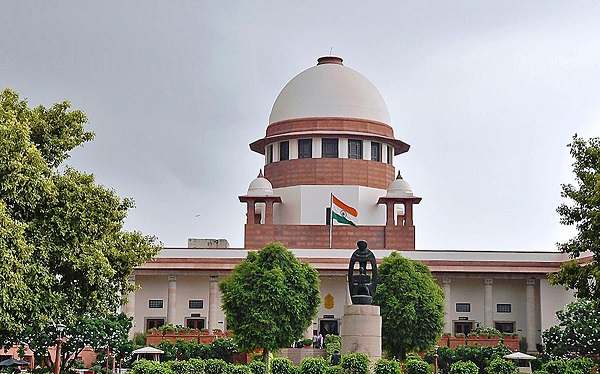SC Agrees To Hear Plea Against Centre's Decision To Ban BBC Documentary
The Supreme Court on Monday agreed to list on February 6 a Public Interest Litigation against the Centre's decision to ban a BBC documentary on the 2002 Gujarat riots in the country. Read further on Dynamite News:

New Delhi: The Supreme Court on Monday agreed to list on February 6 a Public Interest Litigation against the Centre's decision to ban a BBC documentary on the 2002 Gujarat riots in the country.
A bench headed by Chief Justice DY Chandrachud said it would list the matter for hearing on next Monday. Advocate ML Sharma, who has filed the PIL, mentioned the matter for early hearing. The PIL sought quashing of the January 21 order of the Centre, terming it "illegal, mala fide, arbitrary and unconstitutional".
Supreme Court agrees to list on February 6 a PIL against the Centre's decision to ban a BBC documentary on the 2002 Gujarat riots in the country. Advocate ML Sharma mentions the matter for an early hearing before a bench headed by Chief Justice DY Chandrachud. pic.twitter.com/UvmL69UORL
Also Read | Supreme Court rejects PIL seeking two-child policy mandatory
— Dynamite News (@DynamiteNews_) January 30, 2023
Meanwhile, senior advocate CU Singh also mentioned before the bench on how tweets by senior journalist N Ram and advocate Prashant Bhushan with links of the BBC documentary were deleted using "emergency powers" and how students from Ajmer were suspended for streaming the documentary.
The PIL filed by advocate Sharma also urged the apex court to call and examine the BBC documentary - both parts I and II - and sought action against persons who were responsible and were involved directly and indirectly with the 2002 Gujarat riots.
PIL has raised a constitutional question and the apex court has to decide whether citizens have the right under Article 19 (1) (2) to see news, facts and reports on the 2002 Gujarat riots, Sharma said.
Also Read |
Supreme Court dismisses PIL to lower men's marriageable age
"Issue writ of mandamus to the Respondent for quashing of the impugned order dated January 21, 2023 issued under rule 16 of IT rule 2021 being illegal, malafide and arbitrary unconstitutional and void ab-initio and ultra vires to the Constitution of India to provide complete justice," the PIL stated.
As per the sources, on January 21, the Centre had issued directions for blocking multiple YouTube videos and Twitter posts sharing links to the controversial BBC documentary. Whether the central government can curtail freedom of press which is a fundamental right as guaranteed under Article 19 (1) (2) of the Constitution, asked the PIL.
It added, "Whether without having an Emergency declared under Article 352 of the Constitution of India by the president, Emergency provisions can be invoked by the central government?" (ANI)
 Dynamite News
Dynamite News 